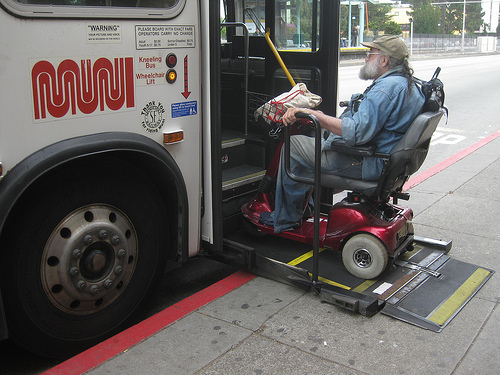


Last week, the Disability.gov blog welcomed a guest post by Megan Totka, chief editor of ChamberofCommerce.com, in which she provided several valuable links to resources for people with disabilities who wanted to start their own business. She also provided a compelling case for why this might be the best course of action for those with an idea and enough ambition:
Advancements in technology have given entrepreneurs the ability to communicate with clientele and employees with efficiency… For people with disabilities, owning a small business provides flexibility that is often missing in big-company atmospheres. In many cases, it means that a person with a disability can work from home and design his or her own schedule.
From Casey’s Cookies to JennyLu Designs to Emma’s Friends, there are so many great stories about people with disabilities finding career fulfillment through entrepreneurial endeavors. In fact, one of the ultimate examples of an individual not allowing their disability to get in the way of their dreams is celebrating 50 years of being in business.
As Karen Caffarini tells it in her article for the northwest Indiana-based newspaper, the Post-Tribune, Ralph Braun was just trying to devise an easier way to get to his factory job in the town of Winamac, Indiana. Braun was diagnosed with muscular dystrophy at age 6, and he had already outlasted the predictions of doctor’s who said he would not live to see his teenage years. Attaching an office chair to the base of a lawn mower gave him greater mobility than the manual wheechair to which he was confined. For the cold, midwestern winters, Braun installed hand controls and a hydraulic lift onto a U.S. Post Office Jeep. These two vehicles became the prototype for the first accessible vehicles for people with disabilities to ever be invented.
Braun went on to found Save-A-Step Manufacturing in 1962, introducing the tri-wheel scooter. Eight years later, the “Lift-A-Way” wheelchair lift for vans helped spawn The Braun Corporation, which today is one of the leading providers of wheelchair-accessible vehicles, employing more than 800 people in three locations, including the 210,000-square-foot manufacturing facility in his hometown of Winamac.
Caffarini did not have the opportunity to speak directly with Braun for her article. Now 71 years old, Braun has lived a full life that includes a wife and children, and the 2010 autobiography, Rise Above: How One Man’s Search for Mobility Helped the World Get Moving. Company spokesperson Megan Wegner tells Caffarini that the passage of The Americans With Disabilities Act (ADA) helped the company flourish because it required public transportation be accessible for individuals with disabilities. As we approach tomorrow’s anniversary of the ADA’s passage, let’s remember that it was the entrepreneurial ingenuity of an individual with a disability that has made life matter for so many others like him, and wish the best of luck to the future Ralph Brauns of the world.
Comments?
Image by coolmikeol (Michael Ocampo), used under its Creative Commons license.